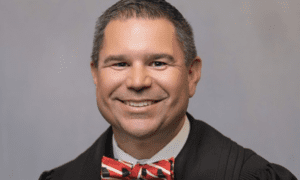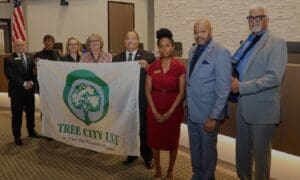The Fayette County Commission wants to stay away from the transit business.
The board voted unanimously Jan. 12 to decline participating on the Regional Transit Committee established by the Atlanta Regional Commission.
Had they joined the committee, it could have put Fayette County in line to pay local funds for transit service, despite the fact that Fayette has no operating transit systems running from here to metro Atlanta.
Prior to the vote, Commission Chairman Herb Frady said that although the county does not have a vote on the RTC, he attends the meetings anyway so he can keep tabs on developments as they occur.
“We can get all the information we need from them,” Frady said, without paying the $5,000 ARC wants voting committee members to pony up.
Not only does Fayette County not have any transit today, but there are no aspirational plans for it to have any transit in the future, Frady said.
“They’re not coming down here without you folks voting to bring it down here, and trust me it’s not going to come down here unless you do. … Anybody that tells you any different just doesn’t know what they’re talking about.”
Commissioner Steve Brown said he applauded Frady’s stance, but added that he is concerned about plans to expand mass transit in metro Atlanta despite being behind by “billions of dollars” in maintenance for the existing transit system. The new transit systems will of course add more of a burden to maintenance costs in the future, Brown noted.
Brown said he also is concerned with how the future operations and maintenance of new transit infrastructure would be funded.
“They are looking for somebody to help fund the billions and billions of dollars of future maintenance that all these expansions are going to incur,” Brown said. “I can tell you that Fulton, Atlanta and DeKalb are not planning on doing it alone.”
Frady then noted that the county does need to avoid stirring up conflict with regional transit officials, lest they consider to “do harm” to Fayette County later on.
“I think we need to do our duties and let them do theirs,” Frady said.
Frady also noted that the commission made the same decision last year to avoid participating as a voting member on the Regional Transit Committee.
According to the ARC, all of the committee meetings are open to the public.
With more than $3 billion earmarked for transit projects on a proposed regional sales tax to be voted on later this year, Brown isn’t the only one concerned about the rest of metro Atlanta’s transit costs creeping up on the whole region.
Fayette County resident Bob Ross, a member of the local Tea Party movement, has been researching the costs associated with transit services.
Addressing the commission Thursday about the $700 million set aside for adding a MARTA rail line connecting the Lindbergh Center to the Emory University/Center for Disease Control center, Ross said the construction cost alone would equal about $137,000 per rider, with a total of 5,100 riders projected each day.
Ross said the plan could save money by ordering each person a Rolls Royce luxury car for their commute instead of building the proposed rail expansion.
Ross questioned the wisdom of spending over $3 billion on transit when spending a like amount on roads, despite the fact that only 5 percent of the region’s residents use any form of public transit.
In fact, MARTA is about $2.2 billion behind on the maintenance of its existing infrastructure, Ross added.











Leave a Comment
You must be logged in to post a comment.